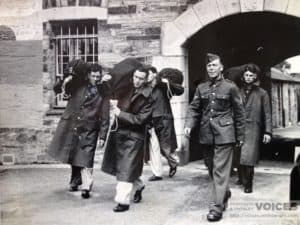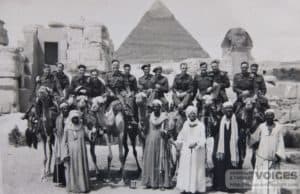My Dad, ‘Bun’ Cotton was called up before the war to do Military training, in the Militia, July 15th 1939. When war broke outhe was transferred to the Duke of Cornwall’s Light Infantry and sent to France with the B.E.F. Although his section was abandoned in the retreat and had one member suffering from shell shock,, they made their way back to Dunkirk and were evacuated. Eventually, because of his technical plumbing skills, he was transferredto the Royal Artillery as a Gunsight Fitter and served with the Army in Africa, and up through Italy. He was demobbed in January 1946.
b 1946




